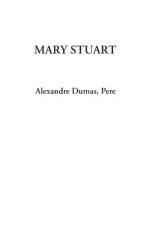Thus, as one sees, and always supposing these letters to be genuine, Mary had conceived for Bothwell one of those mad passions, so much the stronger in the women who are a prey to them, that one the less understands what could have inspired them. Bothwell was no longer young, Bothwell was not handsome, and yet Mary sacrificed for him a young husband, who was considered one of the handsomest men of his century. It was like a kind of enchantment. Darnley, the sole obstacle to the union, had been already condemned for a long time, if not by Mary, at least by Bothwell; then, as his strong constitution had conquered the poison, another kind of death was sought for.
The queen, as she announces in her letter to Bothwell, had refused to bring back Darnley with her, and had returned alone to Edinburgh. Arrived there, she gave orders for the king to be moved, in his turn, in a litter; but instead of taking him to Stirling or Holyrood, she decided to lodge him in the abbey of the Kirk of Field. The king made some objections when he knew of this arrangement; however, as he had no power to oppose it, he contented himself with complaining of the solitude of the dwelling assigned him; but the queen made answer that she could not receive him at that moment, either at Holyrood or at Stirling, for fear, if his illness were infectious, lest he might give it to his son: Darnley was then obliged to make the best of the abode allotted him.




